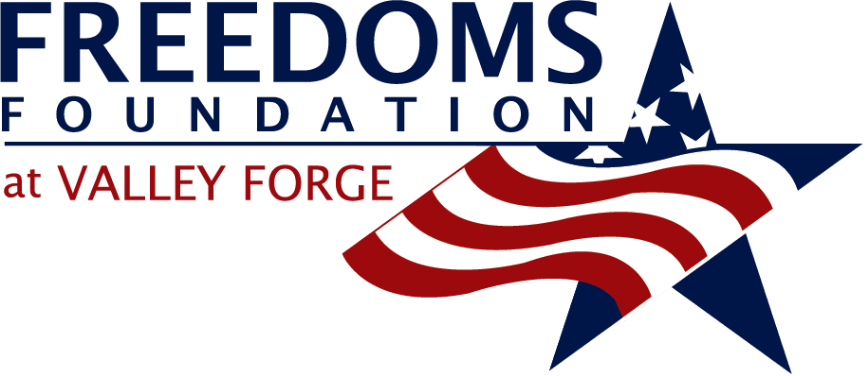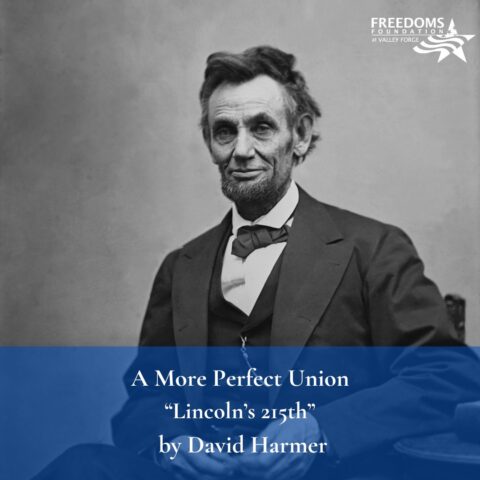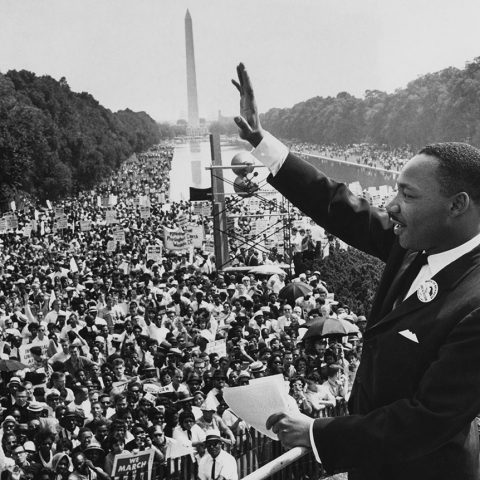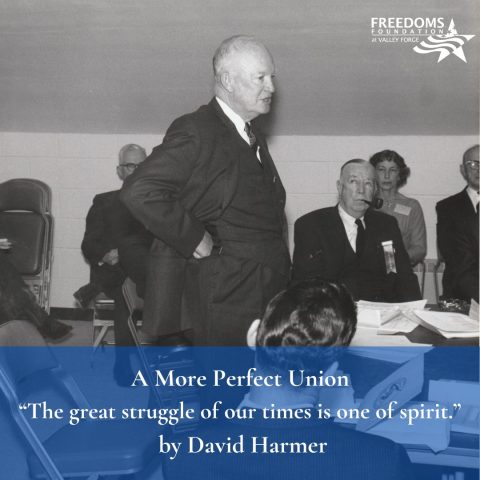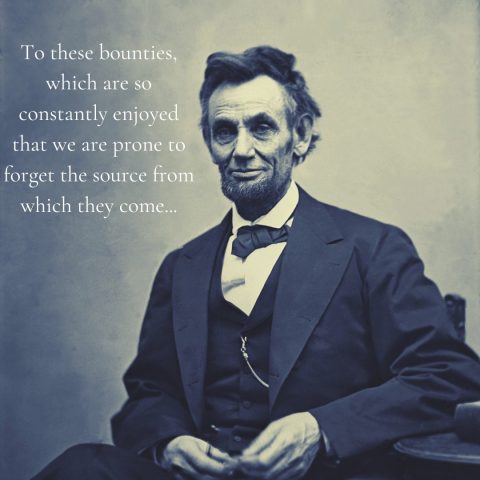Juneteenth and Valley Forge

By David Harmer
Today marks the anniversary of two great milestones in American history: one widely celebrated, the other little noticed. Both merit remembrance.
On this date in 1865, Major General Gordon Granger, U.S. Army, issues General Order No. 3, the basis for the holiday we today commemorate as Juneteenth (a portmanteau of “June” and “nineteenth”). Before quoting the order, let’s set the stage. It’s been over two years since the Emancipation Proclamation took effect (January 1, 1863). It’s been over two months since the last major Confederate army surrendered (April 9, 1865). Yet in Texas, some 250,000 people remain enslaved.
Granger’s first general order announces his appointment to command all troops in Texas. His second announces his senior staff. Having established his authority and theirs, he announces why they’ve come:
Head Quarters District of Texas
Galveston Texas June 19th – 1865.
General Orders
No. 3.
The people of Texas are informed that in accordance with a proclamation from the Executive of the United States, “all slaves are free”. This involves an absolute equality of personal rights and rights of property between former masters and slaves and the connection heretofore existing between them becomes that between employer and hired labor.
The freedmen are advised to remain quietly at their present homes, and work for wages. They are informed that they will not be allowed to collect at military posts and that they will not be supported in idleness either there or elsewhere.
By order of Major General Granger
F.W. Emery
Major A.A. Genl.
Of the order and its aftermath, historian Henry Louis Gates, Jr., writes:
Of all Emancipation Day observances, Juneteenth falls closest to the summer solstice . . . the longest day of the year, when the sun, at its zenith, defies the darkness in every state, including those once shadowed by slavery. By choosing to celebrate the last place in the South that freedom touched . . . we remember the shining promise of emancipation, along with the bloody path America took by delaying it and deferring fulfillment of those simple, unanticipating words in Gen. Granger’s original order No. 3: that “This involves an absolute equality of personal rights and rights of property between former masters and slaves.”
My hope this Juneteenth is that we never forget it.
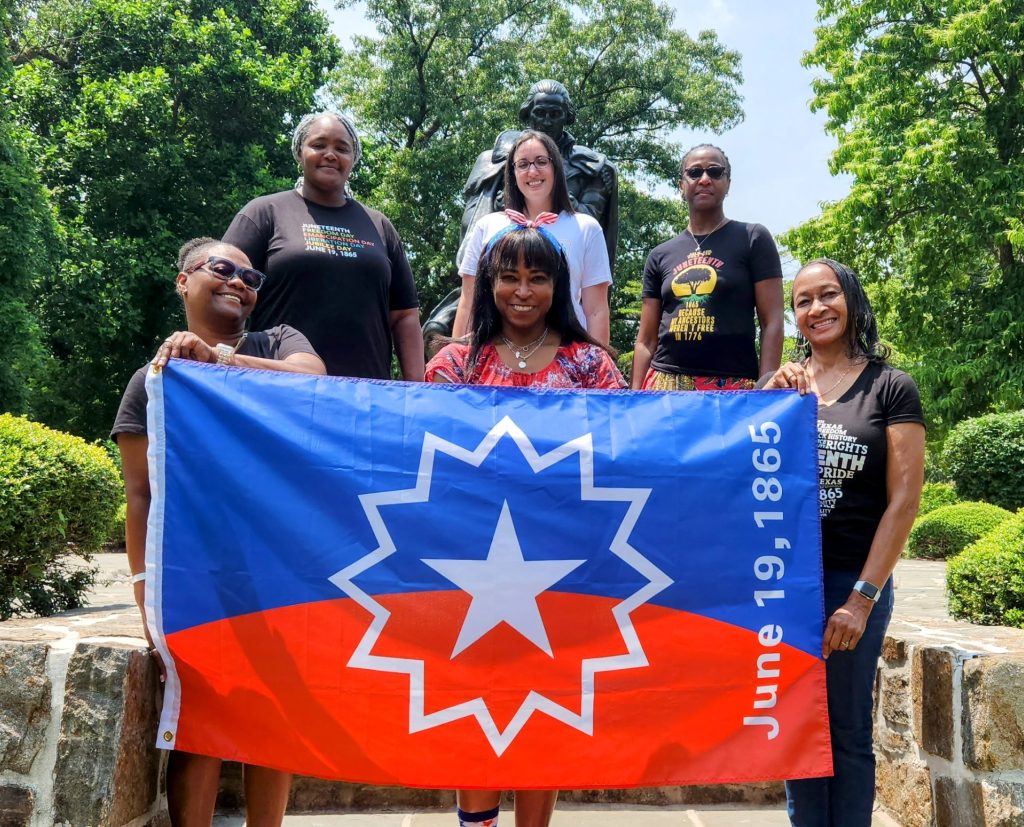
Teachers display the Juneteenth flag on June 19, 2023, during the seminar “Frederick Douglass: Legacy and Impact” at Freedoms Foundation at Valley Forge.
On this date in 1778, General Washington led the Continental Army out of Valley Forge, Pennsylvania, ending its six-month encampment here. Of all assessments of Washington’s achievement, the most insightful may be that of Freedoms Foundation’s founding father, General Dwight D. Eisenhower. Just steps away from where I write, and speaking from personal experience, Ike said:
In war, it is not the clash and danger of the battle that demands the utmost from the soul of the soldier, or of his leader. . . . For the Commander, the sternest test is the holding together of a suffering army; the resisting of his own sympathies and compassion for his faithful followers because devotion to a cause so demands.
Here Washington triumphantly met this test. The long winter of the Valley Forge encampment brought to his army the last ounce of endurable suffering, while Washington was called upon to bear the additional burden of discounting seeming collapse in his rear, desertion in his ranks, hostility in his associates. . . . The freedom of the American people here experienced its greatest danger of extinction, here met its sternest challenge. Here also it fell heir to its finest example of courage and selflessness, of faith and conviction, of leadership and character.
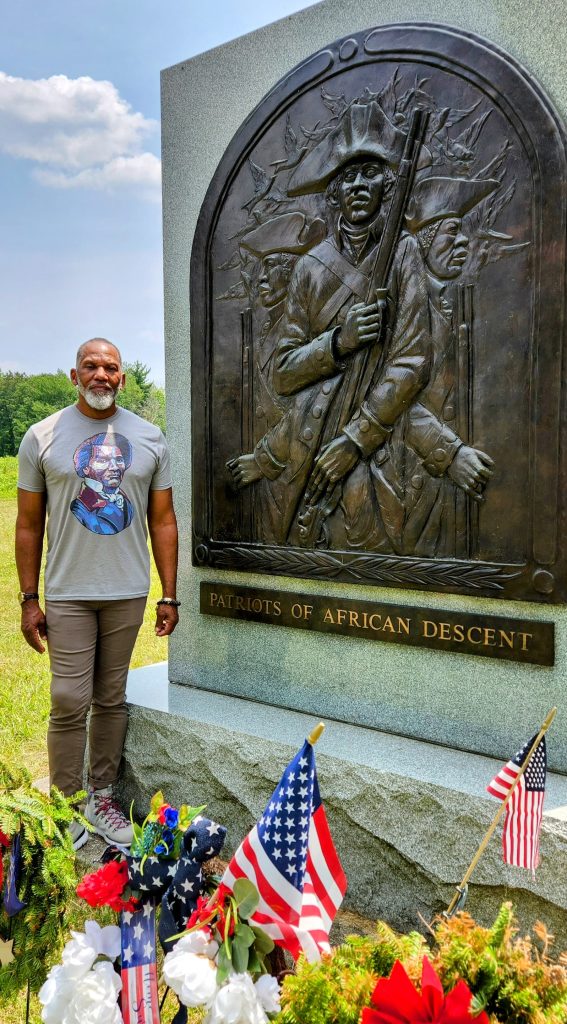
Kevin Douglass Greene, great-great-grandson of Frederick Douglass, visits the Patriots of African Descent Monument in Valley Forge National Historical Park. Kevin is also a special guest and speaker during the “Frederick Douglass: Legacy and Impact” teacher seminar.
In honor of Juneteenth and the triumphant emergence from Valley Forge, Freedoms Foundation today begins an intensive week-long seminar on Frederick Douglass—whose intellectual journey encompasses both. Having suffered slavery himself, Douglass asked, “What, to the American slave, is your 4th of July?” and answered, “a day that reveals to him, more than all other days in the year, the gross injustice and cruelty to which he is the constant victim.” Yet Douglass came to see racism and slavery not as purposes or consequences of America’s founding, but contradictions and betrayals of it. Their incompatibility with the Declaration of Independence was obvious, but Douglass argued that they were equally incompatible with the Constitution.
“Interpreted as it ought to be interpreted, the Constitution is a GLORIOUS LIBERTY DOCUMENT,” Douglass said (capitalization his), encompassing “principles and purposes entirely hostile to the existence of slavery.”
The soldiers who suffered in Valley Forge did so to secure an independence predicated on the truth that all are created equal, endowed by their Creator with unalienable rights, including life and liberty. The Union under Lincoln gave legal force to those convictions. Eisenhower expressed confidence that “with worthy disciples,” they would endure. To cultivate those disciples is our mission and our passion. We welcome your collaboration.
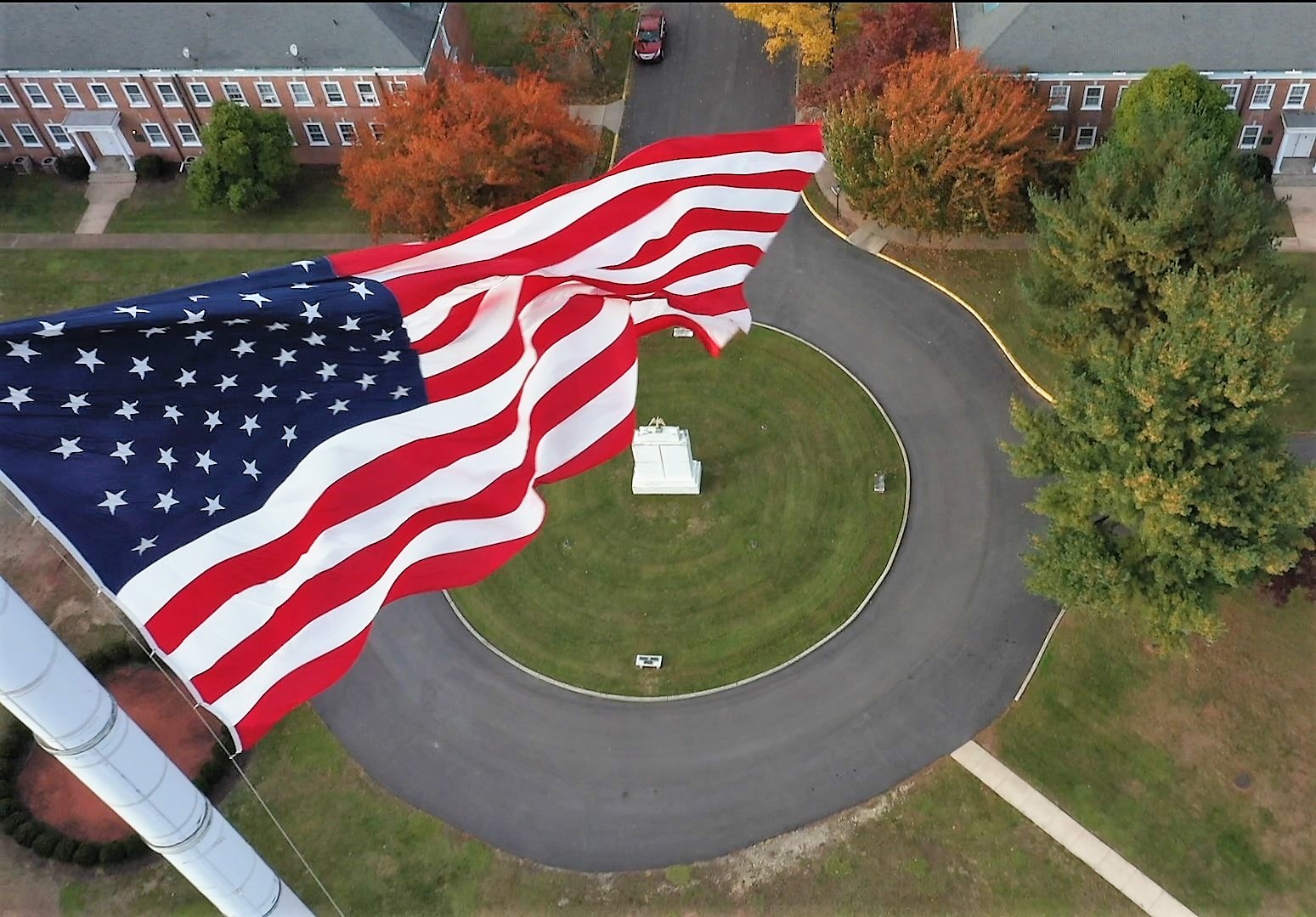
Donate Today
Supporting America’s first principles of freedom is essential to ensure future generations understand and cherish the blessings of liberty. With your donation, we will reach even more young people with the truth of America’s unique past, its promising future, and the liberty for which it stands. Help us prepare the next generation of leaders.
